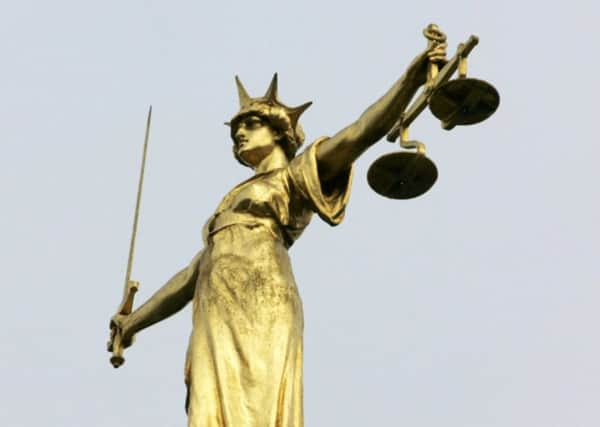Southowram teenager ordered to pay compensation after scrawling graffiti on trains


The teenager, who used the tag ‘NEKO’ and cannot be named for legal reasons, was sentenced at Calderdale Youth Court last month, following an investigation by British Transport Police.
His graffiti partner, 30-year-old Thomas Joseph Faulkner, of Brudenell View in Hyde Park, Leeds was handed an eight month jail term suspended for two years at Leeds Crown Court yesterday.
Advertisement
Hide AdAdvertisement
Hide AdHe was also ordered to undertake 200 hours community service.
Both men had previously pleaded guilty to committing criminal damage on the rail network in Leeds, Bradford and Huddersfield.
The court heard how Faulkner and his associate had both graffitied trains stabled overnight in Huddersfield depot on October 17 and 18, 2014, and on June 30, 2015 near Bradford Forster Square station using the tags ‘KOBE’ and ‘NEKO’.
Faulkner had also graffitied a train in Holbeck Depot in Leeds on the 10 and 11 June, 2015, and his associate, a train stabled overnight in Neville Hill Depot in Leeds on June 8 and 9, 2015.
Advertisement
Hide AdAdvertisement
Hide AdAs a result of investigations undertaken by BTP detectives, and information from the public following a media appeal, Faulkner and his associate were arrested at their home addresses on July 21, 2015.
59 spray cans were seized from Faulkner’s house along with a variety of photos and images of his ‘KOBE’ tag. Graffiti prints and marker pens were discovered at his associate’s address in Southowram.
Detective Inspector Mick Dawes said: “Faulkner and this associate targeted trains stabled overnight in locations across West Yorkshire. The damage caused to the trains by the three incidents was valued at over £6,100.
“Some people consider graffiti to be art but in reality it is nothing more than selfish vandalism that not only scars the railway environment but contributes to the fear of crime and costs operators thousands of pounds in equipment downtime as well as cleaning.
Advertisement
Hide AdAdvertisement
Hide Ad“The financial costs of cleaning up graffiti have to be borne by someone, and that someone is ultimately the fare-paying passenger.
“Trains are taken out of service for cleaning, sometimes for days at a time, causing disruption and delays for passengers.
“Graffiti also involves serious risks to those who go onto the tracks. Both men risked their lives trespassing on the tracks to access the trains they damaged. Trains operate 24 hours a day and it’s impossible to know the exact times of when they will come. Tracks and overhead wires are also live and inherently dangerous.
“I would like to thank the media for publicising this appeal and the public for coming forward with vital information which led to the arrest and subsequent sentencing of these two men.”